18th Annual Consumer Engagement in Health Care Survey Finds Despite Choices, Enrollees Not Spending Time on Health Plan Decisions
(Washington, D.C.) – Results from the 18th Annual Consumer Engagement in Health Care Survey (CEHCS) were published today by the Employee Benefit Research Institute and Greenwald Research. The survey, taken during open enrollment season in the fall of 2022, found that most enrollees spent less than an hour on their health plan during open enrollment, despite having plan choices.
Top findings in the 2022 survey included:
- Most enrollees do not spend a lot of time on health plan choice. Most enrollees spent less than an hour on their health plan during open enrollment. High deductible health plan (HDHP) enrollees spend more time than traditional plan enrollees. About 1 in 5 privately insured Americans were automatically re-enrolled, though just 16% of high-deductible plan owners report they had passive enrollment. HDHP enrollees were more likely than traditional plan enrollees to use employer-provided tools to pick their health plan. Fifty-eight percent of HDHP enrollees used their annual employee benefits guide and 41% used their online portal, compared with 38% and 29% among traditional plan enrollees.
- Many People Have a Choice of Health Plans. About 6 in 10 individuals reported that they have a choice of health plan. HDHP enrollees were more likely than traditional plan enrollees to report that they had a choice. Twenty-nine percent of HDHP enrollees reported that they had 3 health plans to choose from, compared with 17% among traditional plan enrollees.
- Certain Aspects of Health Plans Are More Important Than Others. When it comes to their health plan, most people thought that the following aspects were very or somewhat important: the network of health care providers, low out-of-pocket costs, low premiums, prescription drug coverage and simple to understand. Generally, traditional plan enrollees and HDHP enrollees ranked these aspects of health care in the same order with one exception: Traditional plan enrollees reported that low out-of-pocket costs for doctor’s visits were more important.
- Rise in Consumer Directed Health Plan Enrollment Resumed in 2022 While HDHP Enrollment Continues Decline. Enrollment in health savings account (HSA)-eligible health plans and health reimbursement arrangements reached a record high in 2020 with 19% enrolled in such a plan. Enrollment in such plans fell to 18% in 2021. It increased back up to 19% in 2022. Enrollment in health plans with high deductibles that were not eligible to be paired with an HSA fell from 15% to 12% between 2020 and 2022.
- Most Enrollees Feel Financially Secure. Eight in 10 enrollees reported feeling financially secure. HDHP enrollees were slightly more likely than traditional plan enrollees to report feeling financially secure. Nearly one-third of enrollees reported that premiums and out-of-pocket costs have increased in the past year. HDHP enrollees were more likely than traditional plan enrollees to report higher out-of-pocket costs. Higher health care costs have impacted many aspects of personal finances, such as other spending and use of medical services.
- Coverage of Preventive Care for Chronic Conditions Impacted Choice of HDHP. While 37% of HDHP enrollees reported that their health plan covers preventive care for chronic conditions before they reach their health plan deductible, about the same amount did not know if their plan covered such preventive care.
- Traditional Plan Enrollees Likely to Choose HDHP If Preventive Care Were Covered. One-quarter of traditional plan enrollees reported being extremely or very likely to select an HDHP if it covered preventive care for chronic conditions before they reach their deductible. Another 39% reported being somewhat likely to select an HDHP if such preventive care were covered pre-deductible.
“Open enrollment is the time of year when employees get to evaluate their plan options,” explained Paul Fronstin, director, Health Research Benefits, EBRI. “Employees should consider the trade-offs between premiums and cost sharing when making health plan decisions.
The 2022 CEHCS is a survey of privately insured adults conducted by the EBRI and Greenwald Research. It provides reliable national data on the growth of consumer-driven health plans and high-deductible health plans and the impact on the behavior and attitudes of health care consumers. The 2022 survey of 2,015 individuals, ages 21 to 64, was conducted using an online research panel from Oct. 17 to Nov. 20, 2022.
“Those especially with chronic conditions should pay careful attention as we see employers both enhancing and cutting back on health benefits,” said Lisa Weber-Raley, chief research officer, Greenwald Research.
View the complete 2022 CEHCS 35-page PowerPoint summary.
Organizations supporting the 2022 CEHCS include Blue Cross and Blue Shield Association, HealthEquity, Inc., Millennium Trust Company, Segal, TIAA, UMB Financial and Voya Financial.
Greenwald Research is a leading independent custom research and consulting partner to the health and wealth industries that applies creative quantitative and qualitative methods to produce knowledge that helps companies stay competitive and navigate industry change. For more information, visit www.greenwaldresearch.com.
The Employee Benefit Research Institute is a non-profit, independent and unbiased research organization that provides the most authoritative and objective information about critical issues relating to employee benefit programs in the United States. For more information, visit www.ebri.org.








